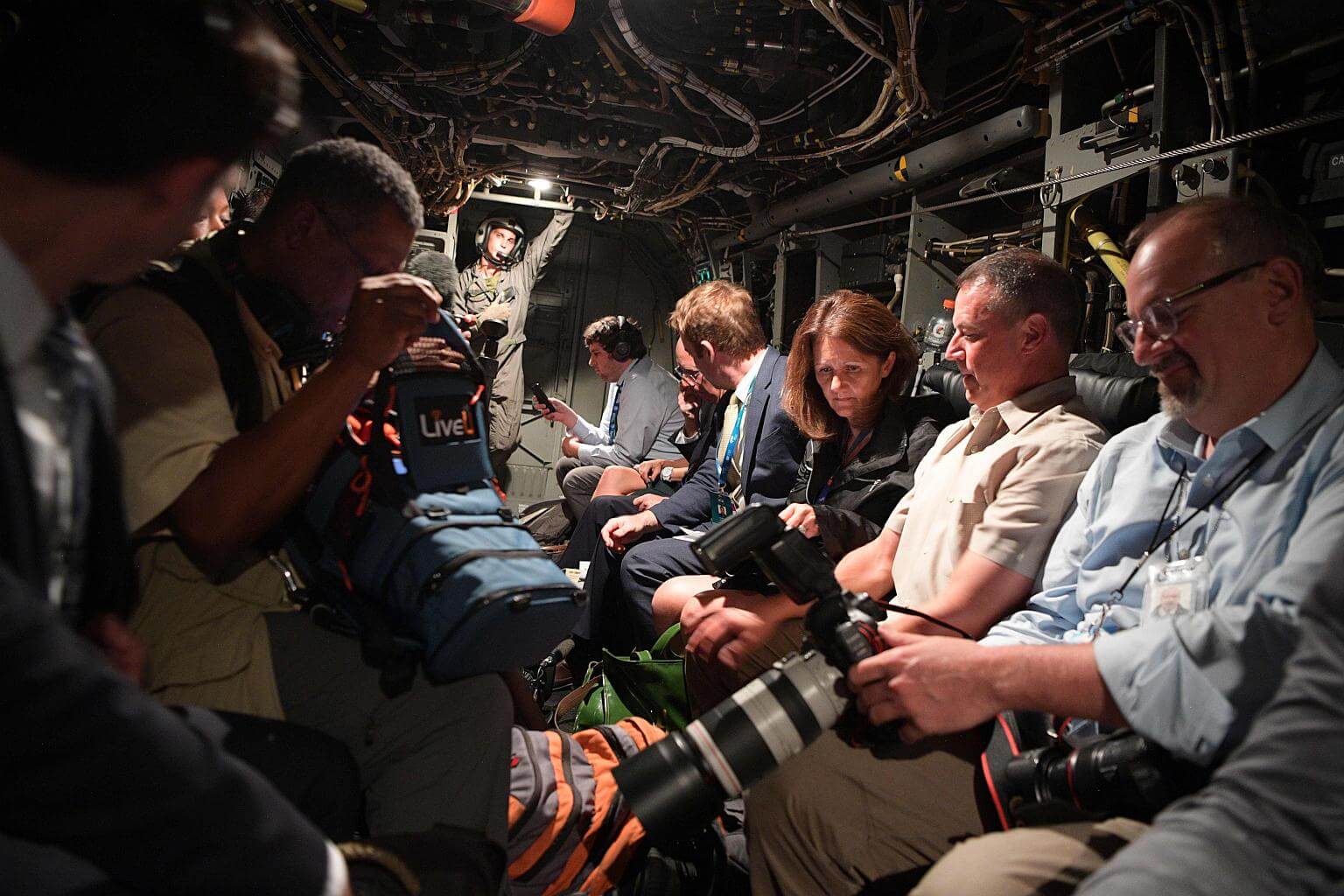'A dangerous time to be a journalist': Press freedom at lowest level for a decade
Sign up now: Get ST's newsletters delivered to your inbox

A total of 259 journalists were jailed last year and 79 were killed.
PHOTO: AFP
Follow topic:
LONDON - Media freedom around the world has fallen to the lowest level for at least a decade, according to a study that shows journalists are threatened by government censorship, organised crime, and the growth of the Internet, the Guardian reported on Thursday (Nov 30).
Turkey has experienced the biggest decline in freedom of speech over the past decade, while the diversity and independence of the media have also declined in Brazil, Burundi, Egypt, Poland, Venezuela and Bangladesh, the newspaper said.
"For the first time, we have a comprehensive and holistic overview of the state of freedom of expression and information around the world," Thomas Hughes, the executive director of Article 19, the freedom of expression campaign group, which produced the report in conjunction with V-Dem, a political and social database, was quoted as saying.
"Unfortunately, our findings show that freedom of expression is under attack in democracies as well as authoritarian regimes."
According to the Guardian, the study measured freedom of expression in 172 countries between 2006 and 2016 through 32 social and political indicators such as media bias and corruption, Internet censorship, access to justice, harassment of journalists, and equality for social classes and genders.
Journalists were threatened by intimidation, prosecution and even murder in some parts of the world: a total of 259 journalists were jailed last year and 79 were killed; in Mexico alone there were 426 attacks against journalists and media outlets.
The rise of the Internet has further threatened media freedom around the world because online content is being controlled by a handful of companies whose processes lack transparenc", commercial pressure on news providers has led to redundancies and cuts in investment, and the vast majority of countries, including China, restrict access to a range of websites, the Guardian said, citing the study.
The study highlighted the vulnerability of journalists reporting on or criticising the "war on drugs" in the Philippines, Mexico and Honduras, and intimidation and malicious charges against opposing voices to the regime of Turkish President Recep Tayyip Erdogan.
As of April this year, 152 Turkish journalists were in prison, according to the opposition. More than 170 media organisations have been shut down since last year's coup, including newspapers, websites, TV stations and news agencies, and 2,500 journalists have been laid off.
On a brighter note, Article 19 said there were improvements in countries including Tunisia, Sri Lanka and Nepal, and also praised the introduction of freedom of information laws in 119 countries.
Another group, the Committee to Protect Journalists, warned there has never been a more dangerous time to be a journalist, reported the Guardian. It said Donald Trump's attacks on the "fake news" media in the US was sending a message to authoritarian leaders that it is acceptable to crack down on the press, pointing to recent criticism of CNN by the Egyptian government for its coverage of the terrorist attack on a mosque in Sinai.
"Labelling reporting you don't like as 'fake news' sends a signal to authoritarian leaders globally that it's OK to crack down on the press," Robert Mahoney, the deputy executive director of the CPJ, was quoted as saying. "It did not take the Egyptian foreign ministry long to seize on Trump's attack on CNN International this month to try to draw attention away from the message to the messenger."
The head of the BBC World Service - the biggest international news broadcaster - warned that the rise of new economic powerhouses that do not fully support freedom of expression would threaten media freedom in the 21st century.
"We are dealing with a world I don't think buys into enlightenment values of freedom of expression as part of economic development," said Francesca Unsworth.
"We see the rise of the economic powerhouses of the Far East - China, Vietnam - which don't have the values of freedom of expression going along with economic development. So I think that is a real problem because if the 21st century belongs to those economies then that is going to shape the future of the world."

